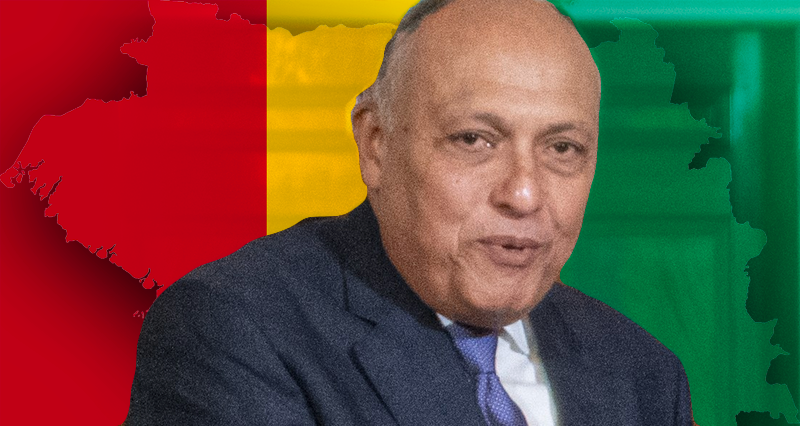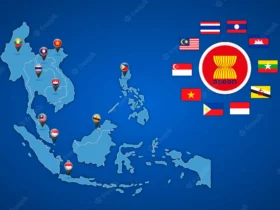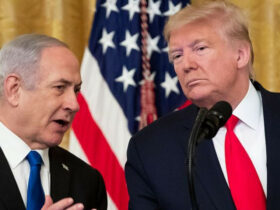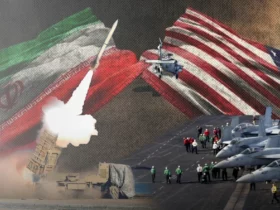By Nardine Ali / Cairo
Guinea: In times of uncertainty, Cairo plays it safe.
In an endless series of military coups in the African continent, Guinea has witnessed the latest episode, when the 83-year-old President Alpha Condé was overthrown by the 41-year-old former French legionnaire, Col. Mamady Doumbouya on September 5.
“The army had little choice but to seize power because of the rampant corruption, disregard for human rights and economic mismanagement under President Alpha Condé,” Col. Doumbouya said.
“The president is with us, he’s in a safe place,” Col. Doumbouya told French media after orchestrating the dramatic coup. Meanwhile, a video of Mr. Condé – barefooted, with shirt buttons open, vest showing and slouched on a sofa – circulated on social media.
Egypt has responded to the news coming from Conakry in the following day, asserting that it follows the recent developments with “deep interest”, refraining from supporting any party of the conflict and describing the ongoing crisis as a “critical juncture”, which the country had descended into.
“The Arab Republic of Egypt affirms that it is closely following with deep interest the rapid developments taking place in the Republic of Guinea, and the critical juncture into which the ongoing crisis in the country has descended,” Egypt’s foreign ministry said in a statement on September 6, calling all Guinean parties to self restraint, abide by peaceful means and to dialogue to settle the crisis in order to steer the country towards safely.
Unlike Qatar, Turkey and Sudan, Cairo did not used the term “military coup”. Foreign Minister Sameh Shoukry even refrained from using the term “coup” when asked to comment on the events in Guinea.
“We closely follow the recent developments in Guinea,” Shoukry said during a joint press conference with his Burundian counterpart Albert Shingiro on September 7, calling on all parties to reach a solution through dialogue in the favor of the Guinean people.
“We are working within the framework of the African Union and the Peace and Security Council, to take appropriate measures to confront these circumstances and get out of this crisis,” Shoukry added, stressing Egypt’s keenness on stability in all Africa and to avoid the long-term effects of turbulences.
A diplomatic source told Alaraby website that Cairo will not rush into taking sides, until a clearer sign emerges from its allies, especially France, to build its own vision towards the recent events.
Egypt, which had good relations with Condé, is also worried that some African neighbors may use the latest coup to attack Cairo’s regime, given its history of overthrowing an elected government in 2013.
Meanwhile, and surprisingly, the pro-regime media has not hesitated to describe the developments as a coup. They even went so far as to explain the dangers of military coups on the African continent. This stance can be interpreted as Egypt playing safe, anticipating any benignity the events can turn into, especially after the African Union’s decision to suspend Guinea’s membership and halting its participation in all AU’s activities.
Also, the new regime in Guinea may serve Egypt’s interests in the conflict with Ethiopia over the Nile water. But in which way? This remains to be seen clearly in the upcoming months.
Turkey: For the first time in 8 years, Egypt determines a date for restoring ties
After eight years of severed relations between the two Mediterranean countries, the negotiations between Egypt and Turkey have witnessed a breakthrough, following a meeting included top officials of both countries in Ankara.
“Diplomatic ties with Turkey could be restored this year if outstanding issues are overcome,” Egypt’s Prime Minister Mostafa Madbouly told Bloomberg on September 9, with the US news website interpreting as a “cautiously optimistic tone”. Turkey’s Minister of Foreign Affairs Mevlüt Çavuşoğlu meanwhile stated on September 7 that Cairo and Ankara would exchange diplomatic ambassadors soon.
The two rivals have discussed several issues regarding the regional unresolved matters, reviewing the demands of both countries, where we can sense in Madbouli’s tone that the conflicts have not been completely solved yet. The key issue for Egypt remains Turkey’s involvement in Libya, where Cairo has a huge concern regarding the Turkish military presence (almost 20,000 mercenaries) in west and mid-Libya, while Turkey is focused more on striking a deal that regulates the gas explorations in the Eastern Mediterranean.
“No other countries should be physically interfering in Libya or trying to influence decision-making in the OPEC state,” Madbouly said, adding: “We would like to leave Libyans to decide their future.”
The Egyptian professor of political science at Cairo University, Tarek Fahmy sees that continuing the negotiations itself is a positive sign, especially in the light of the fact that the anti-Egypt TV shows that broadcast from Turkey by the fugitive elements of the Muslim Brotherhood were halted. Also positively received was Egypt’s gesture of to respect the Turkish continental shelf in the Mediterranean when exploring gas. However, it is still too early to see an end for the eight-year long feud.
“One can sense a keenness from both Cairo and Ankara to resume the diplomatic ties, represented in their care to keep the economic relations all these years,” Fahmy told Xinhua news agency on September 10.
Meanwhile, Egyptian expert at Al Ahram Center for Political and Strategic Studies, Atef Al Saadawy has conditioned restoring the relations with Turkey’s will to meet the Egyptian demands.
“What happens between the two countries is a de-escalation of the disputes with a concentration on the efforts to solve the pain points of the conflict, which is a satisfying sign so far,” Al Saadawy told Xinhua.
Madbouly said that “there’s been a lot of movement in the last few months, but some outstanding issues still remain too,” in an affirmation of the positive steps taken towards normalization.
Several issues are on the stake waiting not only for an Egyptian-Turkish understanding, but collaboration. Let’s not forget that Libya is anticipating parliamentary elections on December 24, where both Egypt and Turkey are obligated to collaborate to unify the war-torn country after a decade of a civil war. Another issue that requires unifying their efforts is the qualification and preparation of Syria to regain its seat in the Arab League. This is an expected new step in a new era of rapprochement between Arab countries and the estranged Levant country, in conflict since 2011.
Another thorny issue is Egypt’s alliance with Greece, where President Abdel Fatah Al Sisi has repeatedly stressed that Egypt will stand solidly behind Cyprus and against practices that may compromise its sovereignty, referring to Turkish actions. This solidarity has been embodied in a statement released by Egypt’s ministry of foreign affairs, where it expressed its “deep concern” over what was announced regarding the change of the status of Varosha region in Cyprus by working on partially open it by Turkey, in contravention of the relevant Security Council resolutions.
“Egypt reiterates its call for the necessity of complying with Security Council resolutions in this regard, and avoiding any unilateral actions that may complicate the situation and increase the tension, with the necessity of the full commitment to the comprehensive settlement of the Cyprus issue in accordance with international legitimacy resolutions,” the ministry said in an official statement released in July.
The Egyptian statement is a reminder to Ankara that the issues between the two countries “will not be solved by just suspending number of TV programs”. Also, it is a confirmation to Cyprus and Greece that the communication channels between Cairo and Ankara will not affect Egypt’s commitment to the deals signed with them.
In return, Ankara expects from Egypt halting the activities of Fethullah Gülen, the main rival of Erdogan, on the Egyptian soil. However, Cairo does not allow Gülen’s group to practice politics in its territories, unlike the Muslim Brotherhood’s situation in Turkey, as described by a governmental source who spoke to Mada Masr.
“What Ankara seeks in Libya is more than just serving its interest in a neighboring country to Egypt, it is a direct security threat on Egypt’s western borders,” the governmental source, which remained unnamed, told Mada Masr, referring to the foreign mercenaries sent to Libya by Turkey.
“For Cairo, Turkey’s proposition of itself as a regional player stronger than Egypt is not acceptable,” the governmental source said, adding that Egypt can accept competition with Turkey for a regional role but does not accept submission to its control.
So far, it is not clear whether Cairo would take decreasing the Turkish military presence in Libya as a gesture of good intentions. But the month of December holds lots of surprises for both countries, depending on which country will obtain the confidence and loyalty of the long-awaited Libyan parliament.

















Leave a Reply